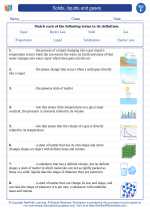Communication
Communication is the process of exchanging information, ideas, thoughts, and feelings. It is essential for the functioning of all living organisms, including humans. Communication can occur through various means, such as verbal, non-verbal, written, and visual.
Types of Communication
- Verbal Communication: This involves the use of spoken or written words to convey a message.
- Non-verbal Communication: This includes body language, facial expressions, gestures, and tone of voice.
- Written Communication: This form of communication uses written words, such as letters, emails, reports, and text messages.
- Visual Communication: Communication through visual aids, such as graphs, charts, maps, and pictures.
Importance of Communication
Effective communication is crucial for various aspects of life, including personal relationships, education, work, and society as a whole. It enables the exchange of information, facilitates understanding, and helps in building and maintaining relationships.
Barriers to Communication
There are several barriers that can hinder effective communication, including:
- Physical Barriers: These include distance, noise, and environmental factors that can disrupt communication.
- Psychological Barriers: Personal emotions, prejudices, and attitudes can impact how a message is received.
- Cultural Barriers: Differences in culture, language, and customs can create misunderstandings in communication.
- Interpersonal Barriers: Conflict, lack of trust, and poor listening skills can impede effective communication between individuals.
Improving Communication Skills
Effective communication skills can be developed through practice and awareness. Some strategies to improve communication include active listening, clarity in expression, empathy, and adapting communication style to the audience.
Study Tips
To study the topic of communication effectively, consider the following tips:
- Understand the different types of communication and their characteristics.
- Identify and discuss the importance of effective communication in various contexts.
- Explore examples of barriers to communication and ways to overcome them.
- Practice active listening and observe non-verbal cues in daily interactions.
- Engage in group discussions or role-playing activities to enhance communication skills.
By studying and understanding the principles of communication, you can improve your ability to convey messages effectively and understand others more clearly.
.◂Science Worksheets and Study Guides Sixth Grade. Solids, liquids and gases
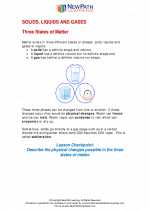
 Activity Lesson
Activity Lesson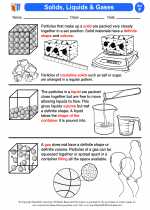
 Worksheet/Answer key
Worksheet/Answer key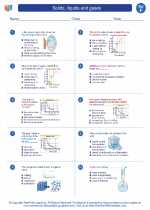
 Worksheet/Answer key
Worksheet/Answer key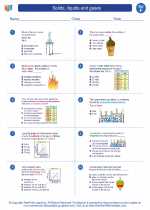
 Worksheet/Answer key
Worksheet/Answer key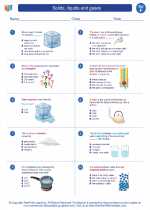
 Vocabulary/Answer key
Vocabulary/Answer key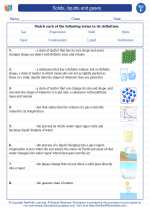
 Vocabulary/Answer key
Vocabulary/Answer key